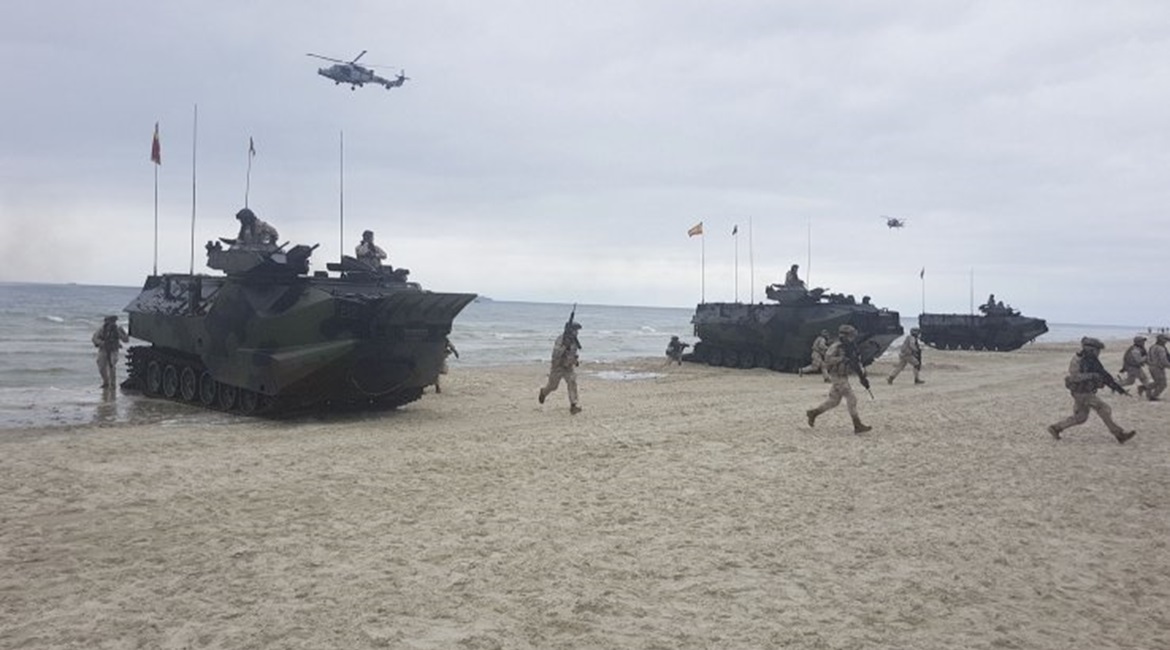
Senior US commanders have underscored a greater focus on sea lines of communication (SLOCs) and the development of a larger allied amphibious presence to secure them as central elements of the US-led ‘Baltic Operations 2019’ (‘BALTOPS 2019’) exercise.

Spanish marines and armoured amphibious assault vehicles, deployed from the US Navy’s Whidbey Island-class LSD amphibious assault ship USS Fort McHenry , come ashore on Palanga Beach, Lithuania, in an amphibious demonstration during ‘BALTOPS 2019’. (Lee Willett)
‘BALTOPS’ is taking place in the Baltic Sea from 9 to 21 June and involves more than 50 surface ships and submarines from the US, NATO, and other allies and partners.
In 2019 ‘BALTOPS’ is being commanded for the first time by the US Second Fleet. While the exercise is focused on Baltic region SLOCs, the presence of Norfolk, Virginia-based US Second Fleet in commanding the exercise underlines US and NATO focus on strengthening wider trans-Atlantic SLOCs.
The increased focus on SLOC security is also demonstrated by the larger amphibious presence in ‘BALTOPS 2019’. This includes five amphibious ships and two amphibious task groups, with these assembled amphibious forces also being commanded at a higher, two-star command level under the US Marine Corps’ (USMC’s) 2nd Marine Expeditionary Brigade (MEB).
‘BALTOPS’ is designed to build allied integration, capability, presence, and readiness “to ensure [the security of] SLOCs into Europe through the Baltic”, said Vice Admiral Andrew Lewis, commander of US Second Fleet on 16 June. He added that the exercise is generating a presence in the region that, alongside “[occurring] in international waters [and staying] in accordance with the rule of law, continues the effect of not making it a contested space, but a space in which all countries of the world can operate”.
Looking to read the full article?
Gain unlimited access to Janes news and more...






